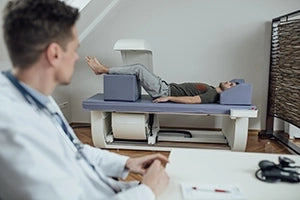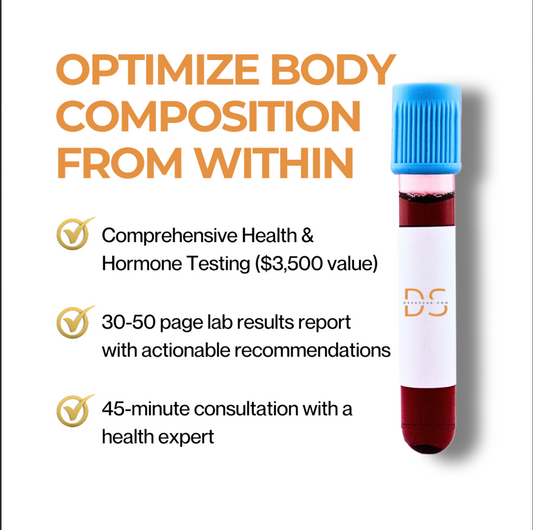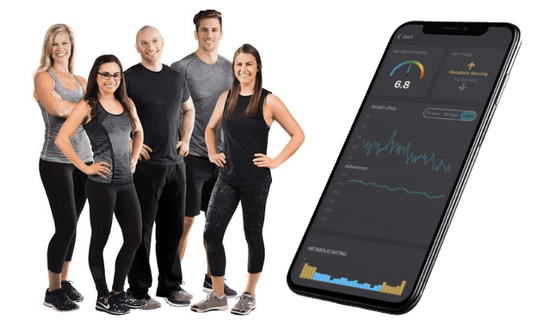
DEXA SCAN For Bone Density
Learn below why a True Bone Density DEXA Scan (Hip & Spine Positioning) is essential for Bone Health and Osteoporosis Prevention
Bone Health & Osteoporosis Prevention: Why a DEXA Scan is Essential
Understanding Bone Health & The Importance of Early Detection
Bone health is a critical aspect of overall well-being, yet osteoporosis and osteopenia often go unnoticed until a fracture occurs. Osteoporosis, a condition that weakens bones and makes them more susceptible to breaks, affects over 10 million Americans, while an estimated 44 million have low bone density (osteopenia), putting them at risk.
A DEXA scan (Dual-Energy X-ray Absorptiometry) is the gold standard for measuring bone density, detecting bone loss early, and preventing fractures before they happen. If you're concerned about your bone health, getting a DEXA scan is the most effective way to assess your risk and take action.

Key Facts About Osteoporosis & Bone Health
📌 Osteoporosis is a silent disease. It develops without symptoms, and most people don’t realize they have it until they experience a fracture.
📌 1 in 2 women and 1 in 4 men over 50 will suffer from an osteoporosis-related fracture in their lifetime.
📌 Osteopenia is the early stage of bone loss and can progress to osteoporosis if not addressed.
📌 Fractures due to osteoporosis occur every 3 seconds worldwide.
📌 The hip, spine, and wrist are the most common sites for osteoporosis-related fractures.
📌 Bone loss can begin as early as your 30s, and without intervention, it accelerates with age.
📌 DEXA scans are the only reliable way to measure bone density and detect osteoporosis before a fracture occurs.
Why You Should Get a DEXA Scan for Bone Health
A DEXA scan is a quick, painless, and highly accurate imaging test that provides a detailed analysis of your bone mineral density (BMD). The results help determine if you have normal bone density, osteopenia (low bone mass), or osteoporosis (severe bone loss).
Who Should Get a DEXA Scan?
✔️ Women in their 20’s to ESTABLISH THEIR BASELINE of BONE HEALTH
✔️ Women over 50 and postmenopausal women ✔️ Men over 60 with risk factors for osteoporosis ✔️ Anyone with a family history of osteoporosis or fractures ✔️ Individuals with low body weight or a history of eating disorders ✔️ People taking long-term corticosteroids (like prednisone) ✔️ Individuals with medical conditions affecting bone health (such as rheumatoid arthritis, diabetes, or thyroid disorders) ✔️ Athletes, bodybuilders, and fitness enthusiasts tracking bone strength

How a DEXA Scan Can Help Prevent Osteoporosis & Fractures
✅ Early Detection – A DEXA scan identifies bone loss before it leads to fractures.
✅ Personalized Prevention – Based on your results, you can take steps like nutrition, weight-bearing exercises, and medication to strengthen bones.
✅ Fracture Risk Assessment – Your scan results help determine if you’re at high risk for fractures, allowing for proactive treatment.
✅ Monitor Bone Health Over Time – If you’ve already been diagnosed with osteopenia or osteoporosis, a DEXA scan helps track progress and measure the effectiveness of your treatment plan.
Take Charge of Your Bone Health – Book a DEXA Scan Today
Don’t wait for a fracture to find out you have osteoporosis. A simple DEXA scan could help prevent bone loss, improve your quality of life, and keep you strong for years to come.
📅 Find a DEXA Scan Provider Near You – Locations page
Your bones support you every day—give them the care they deserve!
Blog posts
View all-

Coaches Corner: Why a DEXA & RMR Go Hand in Han...
When it comes to understanding your body and making meaningful progress toward your health goals, we often default to surface-level metrics. The number on the scale. The way your clothes...
Coaches Corner: Why a DEXA & RMR Go Hand in Han...
When it comes to understanding your body and making meaningful progress toward your health goals, we often default to surface-level metrics. The number on the scale. The way your clothes...
-

Coaches Corner: ’Tis the Season… How to Avoid H...
November and December is a special time of year with family gatherings, festive meals, and traditions that revolve around celebration. But as wonderful as all that is, this season also...
Coaches Corner: ’Tis the Season… How to Avoid H...
November and December is a special time of year with family gatherings, festive meals, and traditions that revolve around celebration. But as wonderful as all that is, this season also...
-

Coaches Corner: 10,000 Steps: Fact or Fiction?
Most of us have heard the recommendation: “Walk 10,000 steps a day.” It’s a popular benchmark in the health and fitness world. Fitness trackers buzz when you hit it. Apps...
Coaches Corner: 10,000 Steps: Fact or Fiction?
Most of us have heard the recommendation: “Walk 10,000 steps a day.” It’s a popular benchmark in the health and fitness world. Fitness trackers buzz when you hit it. Apps...
Shop DEXA Products
-
Health & Hormone Optimization Blood Test
Regular price $650.00 USDRegular priceUnit price / per -
Health Optimization Food Intolerance and Gut Health Test
Regular price $495.00 USDRegular priceUnit price / per -
Free 30 Day Nutrition Coaching Meal Plan and Fitness Strategy
Regular price $0.00 USDRegular priceUnit price / per








